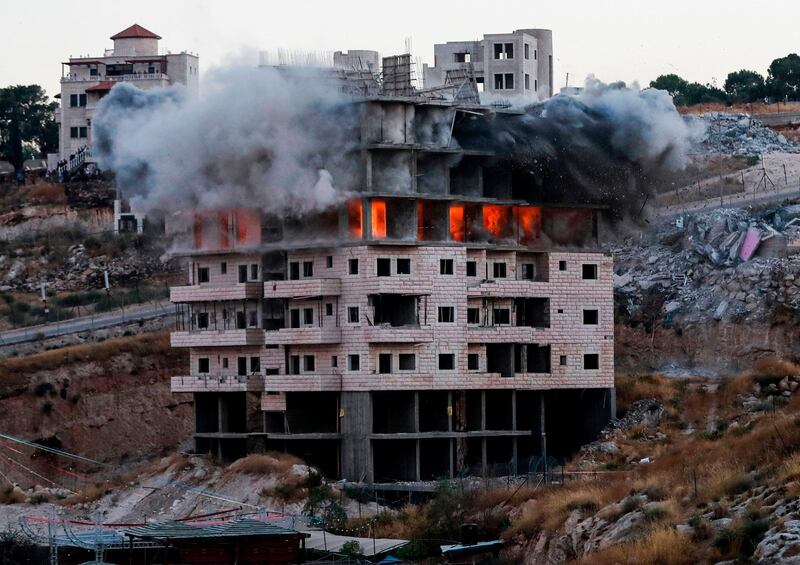A Palestinian man living in occupied East Jerusalem has destroyed his own house after receiving a demolition order from the Israeli authorities.
The Palestinian news agency Wafa reported that Sultan Bashir received the demolition order last month for his 50-square-metre house in the occupied East Jerusalem neighbourhood of Jebel Al Mukaber.
The reason given was the residence’s proximity to the US embassy in West Jerusalem. US President Donald Trump relocated the embassy from Tel Aviv to Jerusalem in May last year to uproar across the Arab world.
“I built the house stone by stone and slowly completed it and tidied it up, but the municipality hounded us,” Mr Bashir told the Palestinian Authority’s Wafa News Agency.
“This is the price of steadfastness in the city of Jerusalem: after the completion of the construction of our modest house and housing where the municipality began to hound us, the municipal mechanisms will demolish it and I will pay the cost.”
He decided to demolish his own home because of the expensive fees that Palestinians have to pay if the Jerusalem municipality demolishes it themselves. The Israeli authorities charge hefty fees in a bid to make Palestinians either raze their own residence, or to collect charges from them.
Israel uses the practice because it says it is a form of deterrence against Palestinian attacks but rights groups say it is a form of collective punishment that is steadily increasing. Palestinians accuse Israel of using the practice to increase its hold on East Jerusalem, preventing Palestinian construction and razing homes that have been built without a permit.
Earlier this year, new statistics showed that more Palestinians in East Jerusalem were displaced from their homes in the first four months of the year due to demolitions than in the entirety of 2018.
In those months, 193 people were affected compared with 176 in all of the prior year, according to United Nations figures.
As of April, 111 Palestinian-owned structures were demolished in occupied East Jerusalem – either by Israeli authorities or by the owners themselves, in order to avoid paying the hefty demolition fees charged by the Jerusalem municipality. On April 30, Israeli authorities demolished 31 structures between several occupied East Jerusalem neighbourhoods, the highest number in one day since the UN started systematically monitoring the practice in 2009.
Left-wing Israeli rights group BTselem has long condemned the practice as one meant to widen the punishment to other Palestinians, not just those who committed an attack.
“The policy of punitive house demolition is, by definition, meant to harm people who have done nothing wrong and are suspected of no wrongdoing, but are related to Palestinians who attacked or attempted to attack Israeli civilians or security forces,” it says.
“In almost all cases, the individual who carried out the attack or planned to do so no longer lives in the house, as they were killed by Israeli security forces during the attack or were arrested and face a long prison sentence in Israel.”






